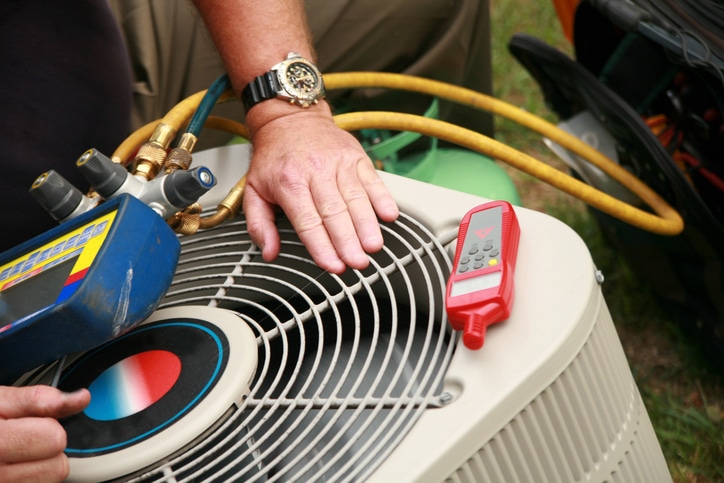
Today’s HVAC technicians are extremely smart individuals. They are intelligent and extremely well-versed in being proficient problem solvers. Each day, they provide services for different types and brands of HVAC equipment. They use their knowledge and training skills along with high quality diagnostic equipment for accurate and prompt repairs. In almost all cases, testing heating and cooling components requires professional certification and specialized equipment. Here are some HVAC tests a qualified technician may use on a daily basis.
Furnace Tests
- Combustion analysis. This test samples gases present in the furnace flue to detect excessive combustion fumes — including deadly carbon monoxide — that pose health hazards. Levels above a specified limit may reveal incomplete combustion or a leaky heat exchanger.
- Flame-sensor test. The flame sensor properly shuts off gas flow if the burner flame goes out for any reason, preventing the leakage of dangerous natural gas. The test is conducted by measuring voltage readings from the flame rod that’s exposed to the burner flame.
- High-limit test. The limit switch shuts down the furnace entirely if the unit begins to overheat for any reason. Operation of the switch is checked by testing electrical continuity in the switch.
- Blower-motor test. Checking the amps drawn by the blower motor can determine the condition of the motor. If it draws excessive amps, this generally means the blower requires replacement.
AC Tests
- Refrigerant level. Refrigerant charge is measured by a qualified HVAC technician using gauges that measure refrigerant on both the high-pressure and low-pressure sides of the system.
- Detecting refrigerant leakage. A technician may add UV dye to the AC refrigerant charge to reveal refrigerant leaks when viewed with special glasses. An electronic leak detector may also be utilized to detect leakage.
- Cooling-performance test. A thermometer is placed inside the supply duct nearest to the AC unit, and a second thermometer is placed in a return vent. After a specific time frame, the temperature readings are compared. The difference between the readings can be used to evaluate general AC cooling performance.
For all your home and business heating and cooling needs, contact the professionals at Jackson & Sons.